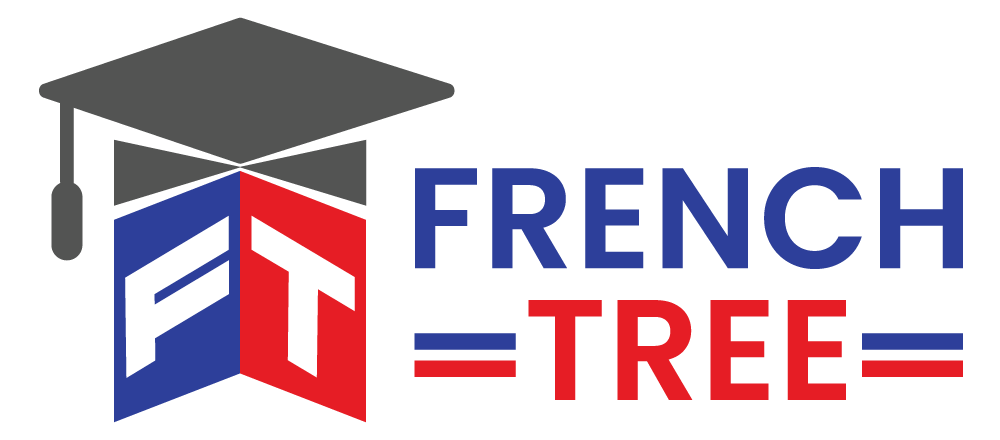Bonjour! Welcome to the world of French, one of the most beautiful and widely spoken languages across the world. Learning French opens doors to new cultures, exciting travel destinations, and even some amazing career opportunities. French is not only the official language of 29 countries but also an essential language in international relations, arts, and culinary worlds.
Benefits of Learning French
Learning French in today's world has numerous benefits. It can improve your cognitive abilities, enhance your appreciation of French literature and cinema, and allow you to connect with millions of French speakers across the globe. Whether you seek to travel, work, or simply enjoy French culture, knowing the language adds immense value to your life.
How to Learn French for Beginners: Getting Started
Set Your Learning Goals
The first step in learning French is to establish clear goals and objectives. Ask yourself why you wish to learn French. Is it for travel, work, or personal enrichment? Having specific goals will support you in staying motivated and focused.
Select the Right Resources: Textbooks, Apps, Online Courses
There are countless resources available for learning French today. Popular textbooks like "French for Beginners" by Charles Duff and apps like Duolingo or Babbel are great beginning points. Online courses from platforms like Coursera and Udemy offer structured learning courses. Select resources that fit your learning style and schedule.
Create a Study Plan and Realistic Schedule
Consistency is the key to language learning. Create a study plan that outlines what you will study every week. Designate a realistic schedule, such as 30 minutes a day, to practise French. Stick to your plan and adjust it as per your progress.
How to Learn Basic French for Beginners
French Pronunciation and the Alphabet
French pronunciation can be a bit tricky for beginners. Begin by familiarising yourself with the French alphabet and its sounds. Use online resources to listen to native speakers communicate and practice repeating after them. Pay attention to accents and silent letters.
Basic Greetings and Common Phrases
Learning basic greetings and common phrases is paramount. Start with simple phrases like "Bonjour" (Hello), "Merci" (Thank you), and "S'il vous plaît" (Please). Practice using these phrases in everyday situations, wherever you go, to build your confidence.
Grammar
Understanding basic grammar is essential for forming sentences. Learn about French articles (le, la, les), nouns, and adjectives. Practice matching nouns with the right articles and adjectives. For example, "le chien" (the dog) and "la maison" (the house).
Build Vocabulary
Start enhancing your vocabulary by focusing on key categories such as family, food, numbers, colours, and common objects. Make a list of words and practise them on a regular basis. For example, learn words like "la famille" (family), "le pain" (bread), and "les chiffres" (numbers).
Effective Methods for Memorising New Words
Memorising new words can be difficult, but there are effective methods to make it easier. Use mnemonic devices, associate words with images, and repeat them on a regular basis. Practice using new words in sentences to strengthen your memory.
Flashcards are a great tool for remembering vocabulary. Make flashcards with the French word on one side and the English translation on the other. Use spaced repetition systems (SRS) like Anki to review flashcards at optimal intervals, improving long-term retention.
Master Basic Grammar
Verb Conjugations in the Present Tense
Verbs are the backbone of any language. Begin with regular verbs in the present tense. Memorise the conjugation patterns for -er, -ir, and -re verbs. Make sure to practise with common verbs like "parler" (to speak), "finir" (to finish), and "vendre" (to sell).
Sentence Structure
Understanding sentence structure is essential for communicating effectively. French sentences generally follow the Subject-Verb-Object order. Practice creating simple sentences like "Je mange une pomme" (I eat an apple) and "Il parle français" (He speaks French).
Gender and Plural Forms in French
In French, nouns have genders (masculine and feminine) and plural forms. Comprehend the gender of nouns and how to form plurals. For example, "le livre" (the book) becomes "les livres" (the books). Make sure to practise using gender and plural forms correctly.
Develop Listening Skills
Use Audio Resources: Podcasts, Music, and Audiobooks
Listening to French on a regular basis improves your comprehension and pronunciation. You can make use of audio resources like podcasts, music, and audiobooks. Popular French podcasts like "Coffee Break French" and music from artists like Edith Piaf can prove to be very helpful.
Watch French Movies and TV Shows with Subtitles
Watching French movies and TV shows with subtitles is a fun way to enhance your listening skills. Begin with shows like "Les Revenants" or movies like "Amélie." Use subtitles to understand the dialogue and over time try watching without them.
Practice with French Language Learning Apps
Language learning apps usually include listening exercises. Apps like Duolingo, Rosetta Stone, and Pimsleur offer audio lessons that allow you to practise listening to native speakers. Use these apps regularly to improve your listening skills.
Practise Speaking Skills
Find Conversation Partners and Language Exchange Programs
Practising speaking the language is necessary for fluency. Find conversation partners through language exchange programs like Tandem or HelloTalk. Practising with native speakers allows you to improve pronunciation and gain confidence in speaking.
Practise Speaking Through Online Platforms
Language apps like Speakly and online communities such as Reddit’s r/French suggest opportunities to practise speaking. Participate in language challenges, join virtual meetups, and immerse in conversations to sharpen your speaking skills.
It's normal to feel nervous when you speak a new language. Begin by practising in low-pressure environments, like speaking to yourself or with friends. Over time you will build up to more challenging conversations. Keep in mind that making mistakes is a part of the learning process.
Enhance Reading and Writing Skills
Start with Children's Books and Short Stories
Begin with simple texts to build your reading skills. Children's books and short stories are excellent because they use basic vocabulary and simple sentence structures. Books like "Le Petit Prince" by Antoine de Saint-Exupéry are great for improving your reading skills.
Writing Exercises
Writing regularly helps strengthen your learning experience. You can put this into practice by keeping a journal in French, writing about your day, or composing simple sentences. Use online tools like Grammarly to check your writing for errors and work on your skills.
As you become more comfortable with French, slowly increase the complexity of the materials you read and write. Move on to more advanced books, newspapers, and essays. Practise writing longer texts, such as essays and stories, to enhance your proficiency.
Immerse Yourself in French Culture
Explore French Cuisine, Music, and Art
Immerse yourself in French culture to enrich your learning experience. Discover the French cuisine by trying recipes or dining at French restaurants. Listen to French music and explore French art to deepen your cultural understanding.
Understanding French traditions gives context to the language. Learn more about French holidays like Bastille Day, cultural practices, and social norms. This knowledge will allow you to connect more deeply with French speakers.
Engage with French Media and Cultural Resources
Engage with French media to practise your language skills and learn more about the beautiful culture. Read French newspapers, watch French news channels, and follow influential French social media accounts. This will keep you informed and enrich your language skills.
Stay Motivated and Consistent
Set Short-Term and Long-Term Goals
Setting goals is critical for staying motivated. Break down your learning into short-term goals (e.g., learning 10 new words a week) and long-term goals (e.g., holding a conversation in French within six months). Track your progress over time and celebrate your achievements.
Track Your Progress and Celebrate Milestones
Regularly tracking your progress keeps you motivated to progress on your learning journey. Use a journal or an app to record your achievements. Celebrate your development of the French language, whether it’s mastering a new verb tense or understanding a French movie without subtitles.
Join French Learning Communities
Joining a community of fellow learners provides support and encouragement while you learn the new language. You should participate in online forums, social media groups, or local French clubs. Sharing your experiences and learning from others keeps you inspired.
Learning Tips for Beginners
Combine Different Learning Methods
Combine numerous learning methods for a holistic approach. Use textbooks for grammar, apps for vocabulary, and conversation partners to improve your speech in the French language. This ensures you develop all language skills simultaneously.
Practise Regularly and Integrate French into Daily Life
Consistency is the key to success. Practice French every day, even if it’s just for a few minutes. You can integrate French into your daily life by labelling household items in French, listening to French music, or changing your phone’s language settings to French to go to the next level.
Be Patient with Yourself and Enjoy the Learning Process
Learning a language is a marathon, not a sprint. Be patient with yourself and enjoy the journey on the way. Celebrate small victories and don’t get discouraged by any setbacks. Remember, every effort you make brings you closer to fluency in the language.
How Do I Start Learning French for Beginners
To summarise, learning French involves setting clear goals, using the right resources, and practising consistently. Make sure to focus on building vocabulary, mastering basic grammar, and developing listening, speaking, reading, and writing skills. Immerse yourself in the French culture and stay motivated by tracking your progress and joining learning communities.
Ready to start your French learning journey? Take on the challenge and enjoy the process on the way. Visit French Treefor additional resources, courses, and community support to assist you on your way to mastering the French language. Bonne chance et bon apprentissage! (Good luck and happy learning!)







